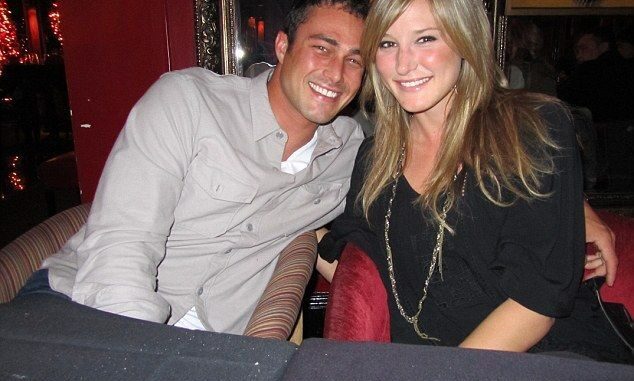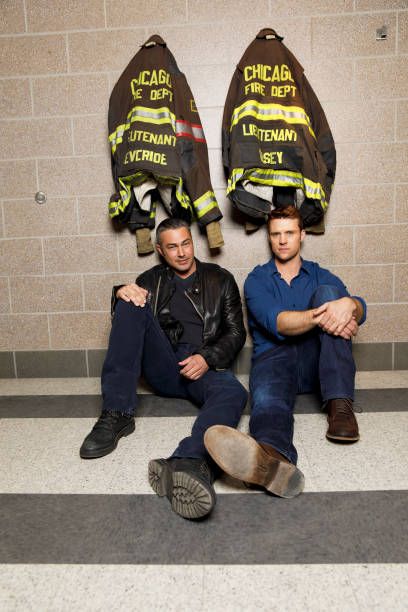
Have you ever felt like your favorite TV show keeps breaking your heart? Welcome to the world of Chicago Fire fans. This time, it’s Darren Ritter who’s packing up and leaving Firehouse 51. And while his exit stings, it’s not just about losing another character—it’s about the pattern behind these exits that has viewers frustrated, confused, and, frankly, fed up.
Let’s dive into why Ritter’s departure isn’t just sad—it’s a symptom of a deeper issue within the Chicago Fire universe.

🔥 Ritter Was More Than Just a Side Character
Ritter wasn’t flashy. He wasn’t the center of every major plotline. But he was real. He was relatable. Kind-hearted, level-headed, and often the emotional balance in the chaos of the firehouse. He represented growth, vulnerability, and friendship.
And now? He’s leaving. Just like that.
🔥 Firehouse 51’s Revolving Door Is Becoming a Problem
It feels like there’s a new goodbye every season. Fans barely get attached before the writers yank another character away. Remember Otis? Shay? Casey? Now Ritter joins the ever-growing list of beloved characters who’ve vanished too soon.
The turnover rate at Firehouse 51 is making it hard to stay invested.
🔥 The Pattern Is Clear—and It’s Frustrating
There’s a trend happening, and it’s not subtle: build up a lovable character, give them depth, then write them off without closure.
It’s rinse and repeat. And while change is necessary for long-running shows, it shouldn’t come at the cost of consistency and emotional investment.
🔥 Ritter Deserved Better Story Development
For a character introduced with promise, Ritter’s arc felt stalled. Sure, he had a few standout moments—like standing up for himself or mentoring new firefighters—but they were few and far between.
His potential was huge. So why not explore it more?
🔥 Where’s the Character Payoff?
Shows like Chicago Fire thrive on long-term storytelling. We love watching characters grow over time. But lately, that payoff has been missing. Ritter’s exit didn’t feel like the end of a journey—it felt like an interruption.
It’s like getting halfway through a good book, only to have the last chapters ripped out.
🔥 Is This About the Actor or the Writing?
Sometimes actors leave shows to pursue other opportunities. But the way Chicago Fire has handled these exits suggests a lack of planning, not just scheduling conflicts.
Even when actors want out, the writers owe fans a meaningful exit. Ritter deserved that.
🔥 Fan Frustration Is Reaching Its Boiling Point

The Reddit threads, the tweets, the fan videos—they all scream one thing: we’re tired. Fans invest emotionally in characters like Ritter. And when their stories are cut short, it feels like a betrayal.
This isn’t just disappointment—it’s disillusionment.
🔥 Firehouse 51 Needs Stability, Not Chaos
We love the drama of fire rescues and high-stakes emergencies. But we also need the emotional anchor of familiar, well-developed characters. Without that, the show risks becoming just another action series.
Firehouse 51 should feel like family. Right now, it feels like a revolving door.
🔥 What Makes Ritter’s Exit Especially Painful
Ritter wasn’t just a firefighter. He represented diversity. He brought a unique voice to the team. He was open about being gay in a traditionally masculine, high-pressure environment—a huge step forward in representation.
His departure leaves a gap that’s more than emotional—it’s cultural.
🔥 Comparing This To Past Character Exits
Let’s not forget the emotional gut-punches we’ve already endured. Otis’s death was brutal. Shay’s was devastating. Casey’s exit was abrupt. Each time, the show loses part of its soul.
Ritter’s exit may not be as dramatic—but it’s equally damaging.
🔥 The Showrunners Must Reevaluate Their Strategy
Character turnover isn’t inherently bad. But doing it carelessly? That’s another story. Fans aren’t asking for the same cast forever—they’re asking for respect. For thoughtfulness. For closure.
It’s time the showrunners take a hard look at what made Chicago Fire special in the first place: the people.
🔥 The Fans Deserve More Than Shock Value
Shock exits might boost ratings temporarily. But long-term, they erode trust. Audiences start to wonder: “Why should I get attached? They’ll just leave anyway.”
That’s a dangerous mindset for any series.

🔥 What Could’ve Been Done Differently
Imagine this: a slow-build arc where Ritter faces a professional challenge, overcomes it, and decides to leave for a noble reason—maybe starting a community program or leading a new squad.
Now that’s an exit worth remembering. One that honors both character and fans.
🔥 Could Ritter Return in the Future?
Never say never. In TV land, doors swing both ways. But unless it’s done right, a return won’t fix the damage already done. Fans want authenticity, not fan service.
The writers have one shot if they bring him back: make it matter.
🔥 What This Means For The Future Of Chicago Fire
If the show wants to survive another decade, it needs to stop burning bridges with its audience. That starts with treating characters—and viewers—with the respect they deserve.
Ritter’s exit should be the wake-up call.
🔥 Final Thoughts: Firehouse 51 Deserves Better
At its best, Chicago Fire is about more than firetrucks and explosions. It’s about family. It’s about loyalty. It’s about people. Losing Ritter isn’t just losing a character—it’s losing part of what made the show feel real.
Let’s hope this trend stops before more hearts are broken.
